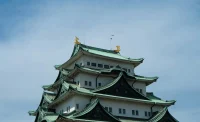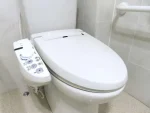What is the meaning of Shikikin Reikin (deposit and key money) for rental properties in Japan? The market price of the amount and why it is necessary are also explained.
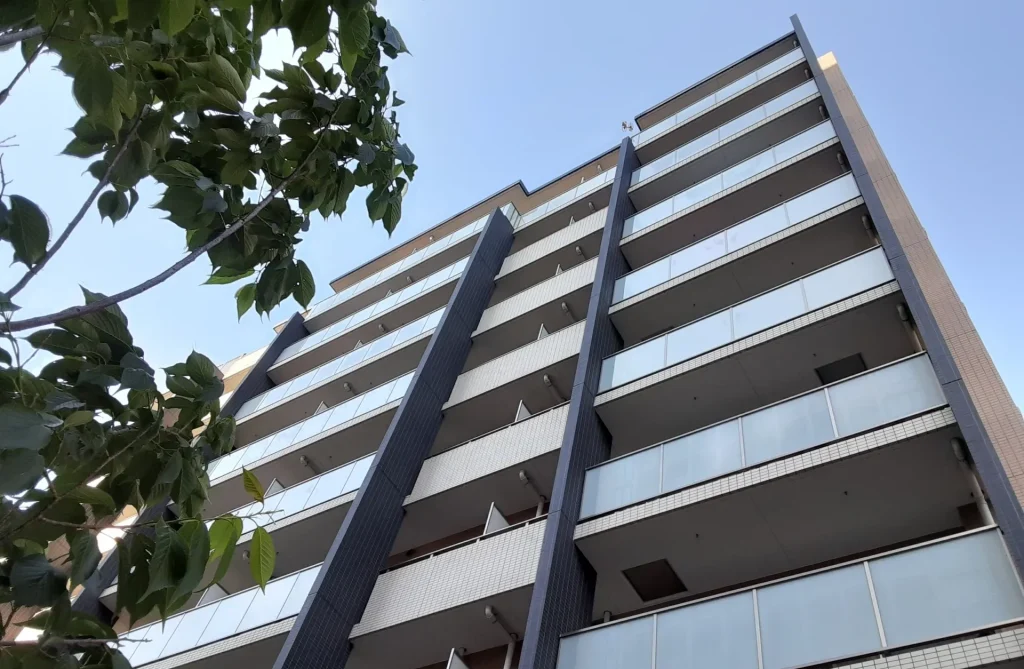
Foreigners new to Japan may often be confused by the terms "shikikin" and "reikin," which always appear when signing a rental housing contract. The terms "shikikin" and "reikin" are unique to Japan and are not commonly found in other countries.
In this article, we will explain in detail the meaning, necessity, and market prices of shikikin and key money. We will also discuss properties without a deposit and key money, which we hope will be useful in your search for rental housing in Japan.
▼Goandup Picks Click here for recommended articles!
- Required before studying abroad! Goandup Nihongo+, an online Japanese language learning service
- This page introduces services for foreigners who wish to study in Japan or improve their Japanese language skills to learn Japanese online.
- Goandup Salon" community for foreigners living in Japan
- We introduce an online community where foreigners living in Japan can exchange information and interact with each other to support their life in Japan.
- Goandup Study" supports foreigners who want to study in Japan.
- This section introduces study abroad support services that provide comprehensive support to foreigners who wish to study in Japan, from preparation for study abroad to living in Japan.
- Where can I buy a prepaid SIM in Japan? Recommended SIM cards for foreigners are also introduced.
- How to purchase a prepaid SIM and suitable SIM cards for foreigners.
- The Complete Guide to Pocket Wi-Fi in Japan for Foreigners!
- We introduce how to select and recommend pocket Wi-Fi products that can be used conveniently in Japan.
- The Complete Guide to Finding a Job in Japan! Finding a job, changing jobs, and part-time work for foreigners
- This site provides foreigners who want to work in Japan with comprehensive information on how to find a job, recommended job sites, and other information necessary to find a job.
What does shikikin reikin (deposit and key money) mean?
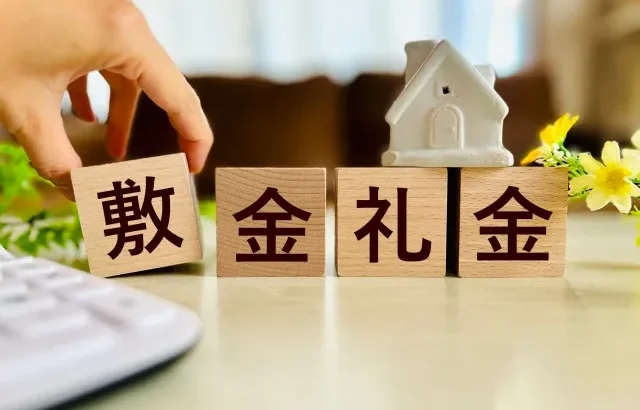
First, let's review the meaning of each of the deposit and key money.
A security deposit is like a deposit paid to the landlord (owner) when you rent an apartment. It is used to compensate for any damage to the room or nonpayment of rent during the tenancy. In other words, it is money that will be returned to you at the end of the contract if there are no problems.
Key money, on the other hand, is money paid to the landlord as a "thank you" for renting the property. Unlike a deposit, once paid, it is non-refundable. It is a business custom unique to Japan.
Why is a security deposit (shikikin reikin) required?
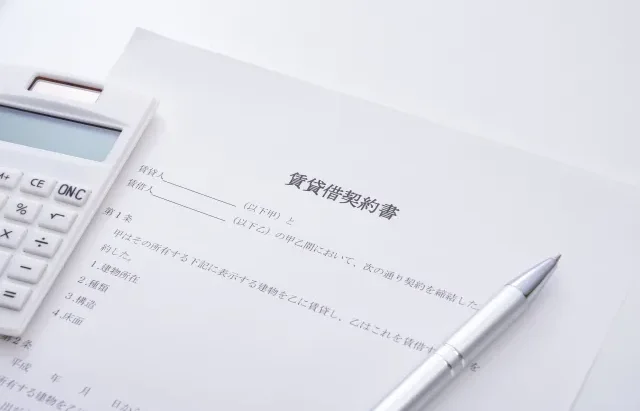
So why are a security deposit and key money considered necessary?
As mentioned above, the reason why a security deposit is required is that it serves as a deposit in case the tenant damages the room or defaults on rent. It is meant to cover the tenant's default.
On the other hand, there are various theories about key money, but it is often considered to be a sign of the landlord's welcome to the tenant. It is also said that in some cases, it is part of the broker's commission to the real estate company. In other words, it is a money that has taken root as a business custom in Japan.
In recent years, however, an increasing number of properties do not set key money. This is to allow landlords to add the key money to the rent or to make it easier to attract tenants by reducing the initial cost to the tenant.
Shikikin-Reikin (Deposit and Rei-kin) Market Price and Return of Deposit and Rei-kin
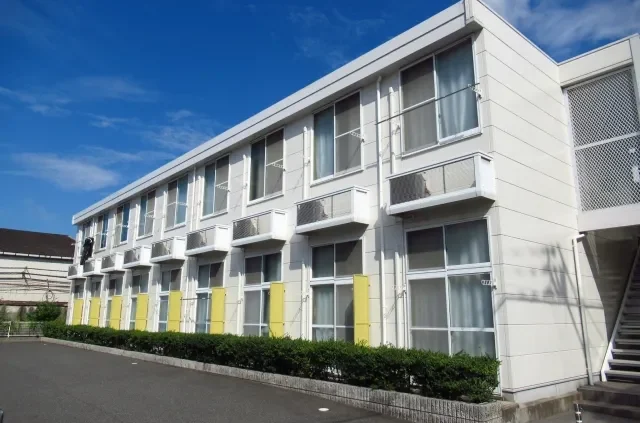
Next, let's look at the market rates for security deposits and key money.
Generally, a security deposit is equivalent to one to two months' rent, and key money is equivalent to one to two months' rent. In other words, if the rent is 100,000 yen, the deposit and key money are 100,000-200,000 yen each.
However, this is only a market rate and the amount varies from property to property. Since rent tends to be higher for properties in central Tokyo than in the suburbs, the amount of the deposit and key money will also be higher. In addition, properties that are newer and more fully equipped are often more expensive than older properties in terms of deposit and key money.
Restoration costs to be covered by security deposit
The security deposit may be used to cover the cost of restoring the room to its original condition when the tenant moves out.
Restoration refers to returning a room to its original condition when a tenant moves out. Specifically, this includes re-covering the wall cloths, waxing the floor, etc. Note that damage caused by the resident's intentional or negligent actions may be charged separately from the restoration fee.
Normally, restoration costs are deducted from the security deposit, but if the costs exceed the security deposit, the tenant will be billed additionally.
逆に, since the security deposit is the same as collateral, it will be returned at the end of the contract as long as the room has been used carefully and there is no noticeable deterioration other than age. It is important to note that the security deposit may be refundable, but the key money will not be.
Once you understand the market rates for deposit and key money, the next step is to check the size and facilities of the property.
The size of a Japanese property is often expressed in units of "tatami". If you would like to know how to count tatami and tips on how to live comfortably, please refer to "What is the size of the unit "tatami (jou)"? The size of 6 tatami mats and tips for comfortable living.Please refer to the "See
Also, if you would like to know more about the layout and facilities of a typical Japanese apartment, please contact us atWhat is a typical Japanese apartment like? Explanation of size and facilitiesis also helpful.
Are there any houses without Shikikin-Reikin (deposit and key money)? What is the reason for no Shikikin-Reikin (key money)?
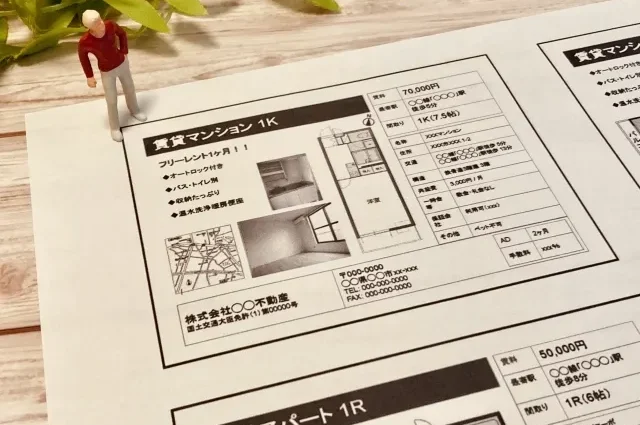
If the deposit and key money are high, the initial cost will be a big burden. Then, are there any properties that do not require a security deposit and key money?
As it turns out, there are few properties that do not require both a security deposit and key money, but there are those that do require one or the other. In particular, the number of properties that do not require key money is increasing.
Features of properties that do not require a security deposit and key money include the following
- Older building age
- Far from station
- Poor sun exposure or poor ventilation
- Surroundings are not very nice.
In other words, it can be said that the deposit and key money are often waived in less popular properties.
Nevertheless, there are an increasing number of new buildings with high-grade facilities that offer no key money. By adding the amount of key money to the rent, they reduce the initial cost burden on tenants and encourage them to move in.
However, it is best to assume that there is some reason for a property to have both a security deposit and key money free.
Serious employment support to help you realize your dream of working in Japan!

Do you want to work in Japan?
Let us "Goandup" make that dream a reality!
【 Program Features 】
✅ JLPT N3 level Japanese language acquisition
✅ Thorough preparation for the specific skills test
✅ Full support for job hunting in Japan
Business-focused one-on-one lessons will help you find a job in Japan in the shortest possible time.
【 Program Menu 】
- Individual Japanese language lessons
- Intensive curriculum to obtain N3, especially specialized lessons for business Japanese that can be used at work.
- Intensive curriculum to obtain N3, especially specialized lessons for business Japanese that can be used at work.
- Preparation for the Specific Skills Test
- Customized materials for specific skill tests will be used to focus on frequently asked questions and learning to pass the test.
- Customized materials for specific skill tests will be used to focus on frequently asked questions and learning to pass the test.
- Resume and CV support
- To create resumes and CVs tailored to Japanese corporate culture, and to brush up on self-promotion and motivation for application.
- To create resumes and CVs tailored to Japanese corporate culture, and to brush up on self-promotion and motivation for application.
- Interview Preparation
- Guidance on areas for improvement through mock interviews and feedback based on corporate interview scenarios. Learn interview etiquette and behavior unique to Japan.
- Guidance on areas for improvement through mock interviews and feedback based on corporate interview scenarios. Learn interview etiquette and behavior unique to Japan.
- career consulting
- Provide introductions to companies that match the participant's career goals, select companies to apply to, and provide advice on the level of knowledge required by the companies to which the participant is applying.
- Provide introductions to companies that match the participant's career goals, select companies to apply to, and provide advice on the level of knowledge required by the companies to which the participant is applying.
- Chat Support
- In addition to one-on-one individual lessons, we also accept casual questions via DM (visa application, living support, assistance in finding a room, etc.).
If you are serious about your career in Japan, join us now!
▶︎ for more informationclick here.
We will do our best to support your success in Japan!
summary
How was it? In this issue, we have explained in detail the meaning, necessity, and market prices of the deposit and key money.
When renting a rental house in Japan, the deposit and key money are unavoidable costs. When looking for a property, it is important to fully confirm the amount of the deposit and key money and to understand the total initial cost.
Also, keep in mind that the security deposit may be refundable, but the key money is not.
Although the high cost of a security deposit and key money can be burdensome, it is important to separate them as necessary expenses to obtain a good living environment. However, it is important to consider the advantages and disadvantages before signing a contract for a property that does not require a security deposit and key money.
We hope your search for rental housing in Japan goes as smoothly as possible.
Your support will help us!
Thank you for visiting Goandup Picks. Our mission is to provide you with more useful information to show the world what Japan has to offer.
Your support will help us to further enhance our activities, so please support us!

